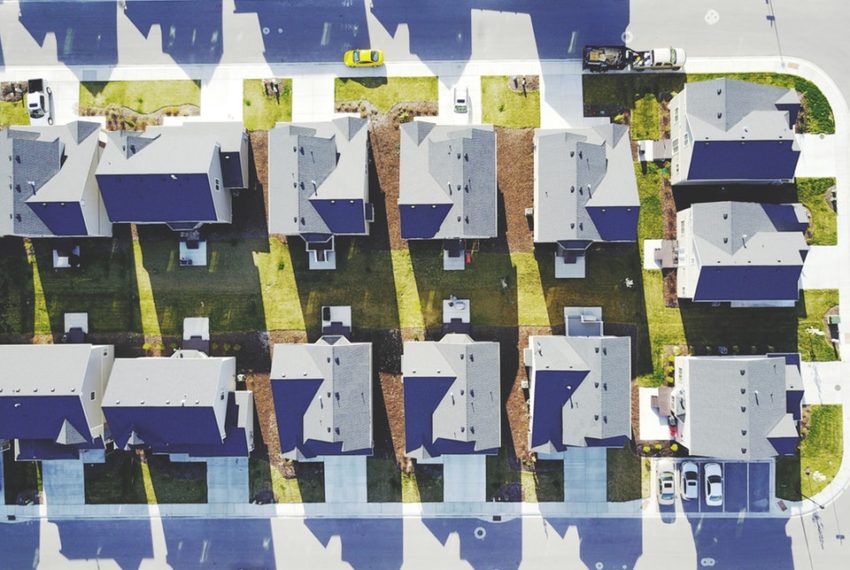
When it comes to taking that first step towards independence, many of us think about moving out, renting, even buying, our first property. But with so many factors, it can quickly turn into one massive to-do list. Here are a few things to consider and know as a first-time renter.
There are different types of rental situations
- Landlord rents out an entire property to a single tenant – good if you’re the type who prefers their own space, or has a family to support.
- Landlord rents out an entire property to multiple co-tenants under one agreement – under this agreement each tenant shares the responsibility of general property upkeep and rent payment.
- Landlord runs a registered rooming house – in these situations, rooms within properties are rented out to 4 people or more. Residents of rooming houses typically have access to shared facilities such as kitchens and bathrooms with other occupants.
- Sub-tenancy – an entire property is rented to a head tenant through a landlord. This head tenant is then able to rent part of the premises to a sub-tenant after gaining consent from the landlord. Following this agreement, the sub-tenant is granted exclusive use of certain areas of the house (e.g. bedroom) and shared use of others (e.g. kitchens).
- Lived-in landlord rents rooms to 1-3 people – in this circumstance rooms within a property are rented out to individual tenants on separate agreements. The landlord also lives on the property with the residents.
While each rental situation has its pros and cons, it’s really a matter of what works for you. So what sorts of things should you keep in mind when choosing what suits you best?
- How much are you willing to pay? Otherwise, what’s your budget? In Australia, small apartments, even those far a ways out from the business district can go for $200 per week. At the other end of the spectrum, you can find higher-end rental properties at prices ranging up to $15,000 per week.
- Do you need a place to park? Not all residential properties are good at accommodating cars, let alone motorcycles. If you need a safe and reasonable place to park your vehicle, it’s definitely something to keep in mind.
- If public transport is your main mode of commute, consider a rental property with close proximity to bus/tram stops or a train station.
- In terms of location, convenience for work or school.
- On the other hand, perhaps you’re starting a family. Consider how many rooms you’ll need. The type of garden space that will cater to your kids. The local schools surrounding your area.
- Do you have a pet? Will your desired place of residence accommodate for this?
The internet is a place of wonders when it comes to searching for property. It’s as simple as a quick Google search of “property to rent [insert name of city/town]”. A basic punch of that into Google’s search engine will give you internal and external photos of an array of properties, detailed descriptions of those properties, even location maps of your specified area. For a more tailored property search, there’s also the option of sites like domain.com and realestate.com.au.
However, don’t discount the classifieds either. Typically, you’ll find a “rental property” section within the newspaper that showcases listings with information based on weekly rental price. Alternatively, letting agents can be your best source for location-specific rental properties. Particularly because they keep a printed list of rental properties organised based on the weekly price on hand.
So how do you go about getting your rent application approved?
- Having financial proof in the form of bank statements that show consistent payment of previous mortgages/loans/payment plans and 3 months worth of pay slips.
- Having/Getting a guarantor. A guarantor is someone who can “back you up” when things go south. Your guarantor is essentially responsible for looking after your house and paying rent when/if you’re unable to.
- Having good references. This can include both personal and professional references. Be it your current/past employer who can vouch for your exemplary workspace.
- Think about writing a letter to the landlord. Why would their property suit you? Why should they consider you as an appropriate tenant among others?
- Be financially prepared. When renting you’re required to pay a bond as a type of security deposit and typically 4 weeks of rent in advance. Having your finances in check from the get-go will keep you in good stead with your landlord.
- Beat the horde of people and have your application ready when viewing the property. This includes having photocopies of your ID attached to your application.
Tidbits you should know:
- Your belongings are not covered by your rental agreement. Therefore, it is wise to keep an inventory of your personal belongings when you move in. Otherwise, consider taking out Contents Insurance.
- It is commonplace for regular checkups of your property to be made. Property inspections are usually carried out within the first 6 weeks of a new tenancy, followed by every 3 – 6 months. It is required, however, that agents give at least 7 days notice before inspections.
- If you decide to vacate the property early, you are required to give notice of vacation. The notice period varies per state, and the notice must be in writing, include the date of notice, the date you are planning to vacate and the reason for vacating.
- Lease agreements can be month-by-month or fixed. Generally, a fixed term is between 6 – 12 months.
- A pre-inspection is done prior to tenancy, and a final inspection is done at the end of tenancy. These inspections are used as the basis for the return of your bond. As such, it is wise to make sure you outline any damage you find prior to your tenancy to your realtor/landlord.